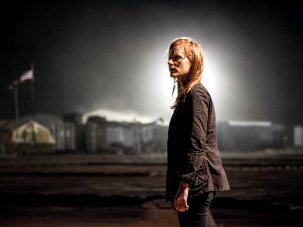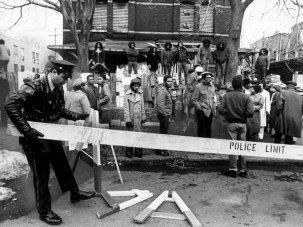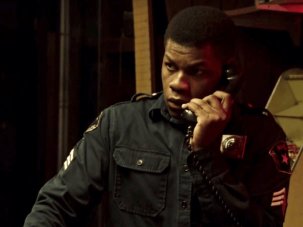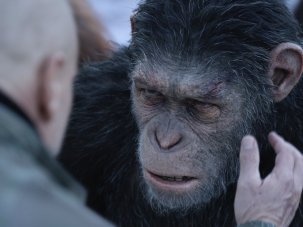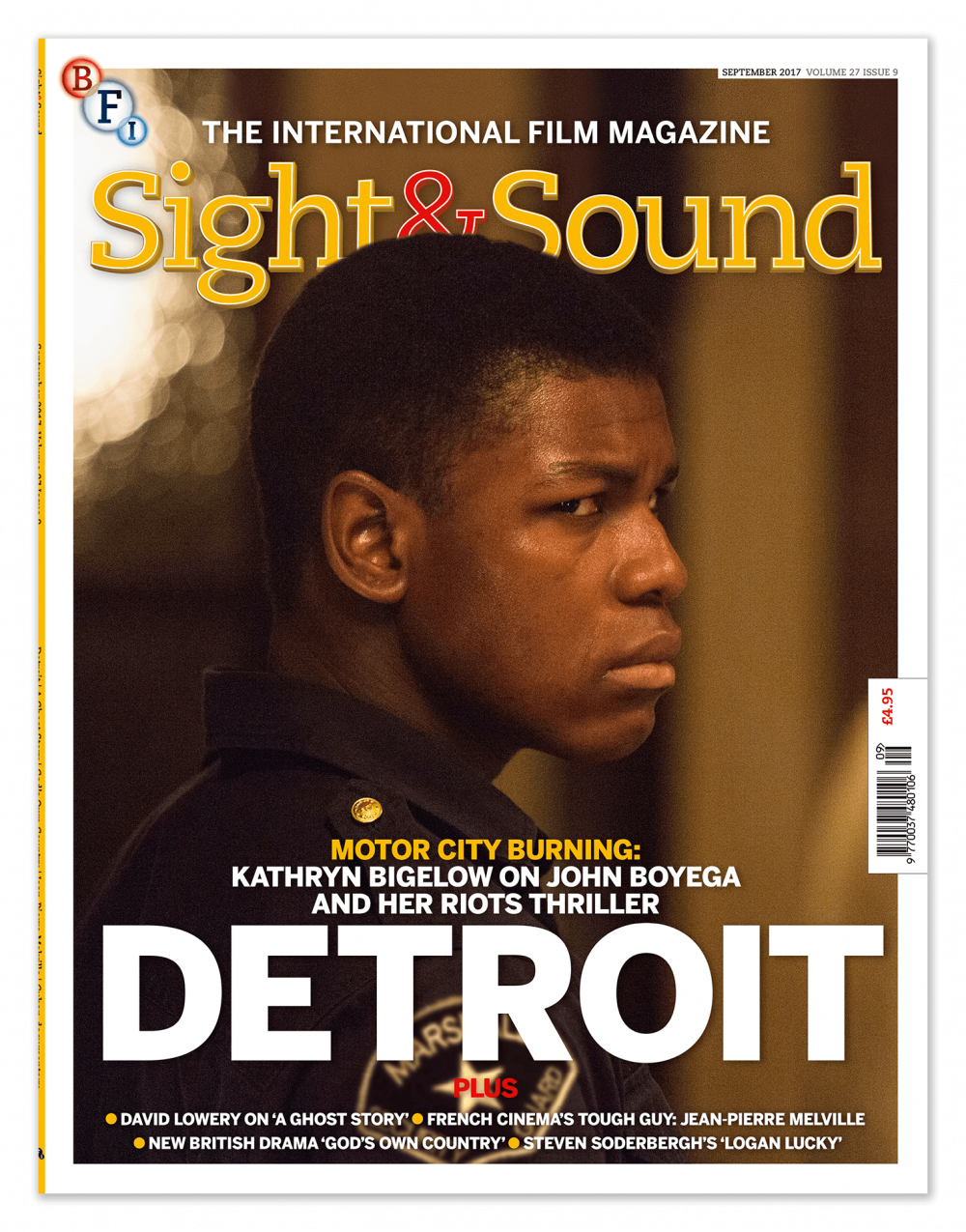
“What is the anatomy of an uprising? That’s what I was trying to unpack… Systemic racism is very abstract. Comprehending it on a human level is the challenge of the story.”
Posted to subscribers and available digitally 4 August
→ Buy a print issue
→ Access the digital edition
→
On UK newsstands 8 August
In our September issue, maverick director Kathryn Bigelow discusses Detroit, her account of the five-day riots that engulfed the Midwestern city in 1967, and an incendiary portrait of police brutality and racism. Our cover star John Boyega plays a security guard caught in the middle of the notorious Algiers Motel incident, where a group of young people were beaten and tortured by the riot task police force.
Unsurprisingly, given Bigelow’s intense and immersive style of filmmaking, she “ensures that the audience feels as much as possible as though it is staring into the barrel of a gun”, as our interviewer Ryan Gilbey describes it. In his roving interview with Bigelow, she tells Gilbey about making a film in the shadow of recent police violence against African Americans and discusses her retreat from pure fiction into quasi-journalism – Detroit is her third film to interrogate recent history after The Hurt Locker and Zero Dark Thirty.
Also in this issue: on the eve of a BFI Southbank retrospective, we look again at the cinema of French auteur Jean-Pierre Melville, with its hard-edged Gallic poetry, morally compromised war veterans and intricately-orchestrated crime procedurals. Nick James chooses key sequences from seven films to illustrate what makes Melville’s cinema so iconic.
A Ghost Story is intimate love story with a cosmic scope and a study of grief that focuses on the odd but very convincing spectre of a ghost imagined by a white sheet with two eye-holes. Philip Concannon talks to David Lowery about his very untraditional haunted house movie.
One of the most impressive British debuts of late is actor-turned-director Francis Lee’s God’s Own Country, an intense drama about the love affair between a Yorkshire farmer and his Romanian co-worker. It’s also a timely film, arriving as free movement is under attack in Brexit Britain and on the anniversary of the partial decriminalisation of male homosexuality in the 1967 Sexual Offences. Trevor Johnston talks to Lee about this personal project (Lee grew up in rural Yorkshire), his working methods and his intense focus on authenticity.
And finally, Michael Chanan guides us through an era of high-quality experimental and iconoclastic Cuban documentary filmmaking that exploded in the country after the 1959 revolution.
We also feature reviews of all the major summer releases, including Steven Soderbergh’s heist caper Logan Lucky, Christopher Nolan’s WWII epic Dunkirk, the riotous comedy Girls Trip and US indie Patti Cake$.
Among the other highlights in this issue are a report on the historical gems unearthed by Bologna’s Il Cinema Ritrovato festival; a reappraisal of the little-known but vital New York film critic and writer Annette Michelson; an interrogation of recent genre cinema, which takes itself too seriously, according to our writer Nick Pinkerton; an in-depth exploration of Suzuki Seijun’s enigmatic Taisho Trilogy and an interview with the director of forthcoming Indian indie Hotel Salvation.
Features
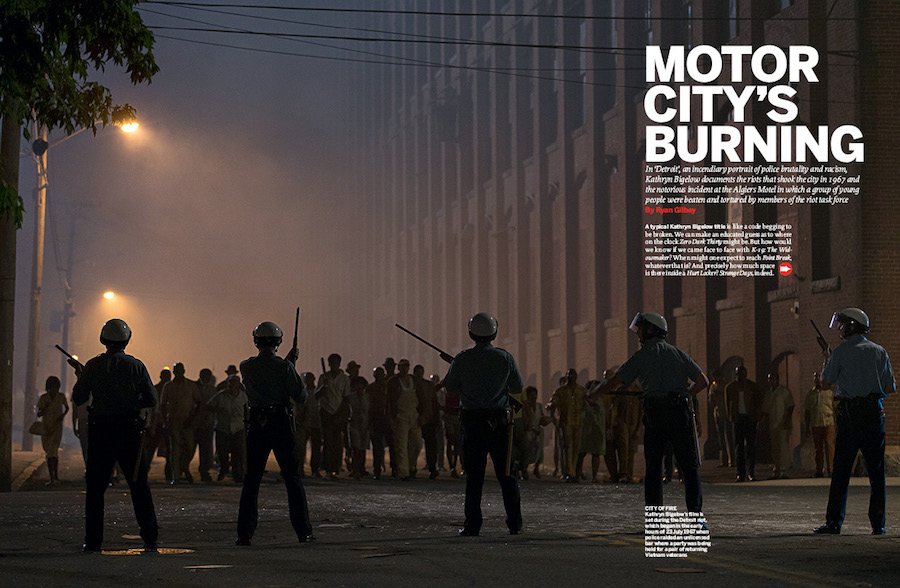
Motor City’s Burning
In Detroit, an incendiary portrait of police brutality and racism, Kathryn Bigelow documents the riots that shook the city in 1967 and the notorious incident at the Algiers Motel in which a group of young people were beaten and tortured by members of the riot task force. By Ryan Gilbey.
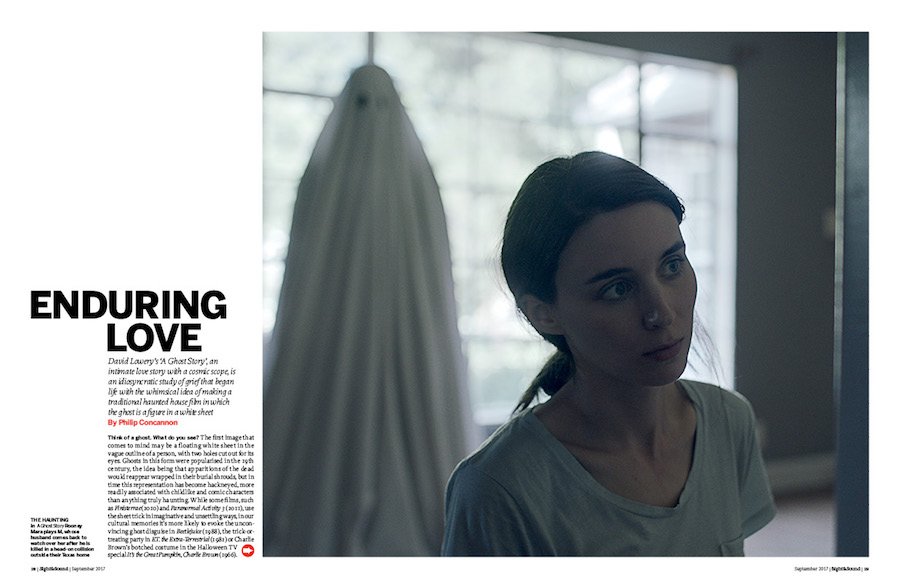
Enduring Love
David Lowery’s A Ghost Story, an intimate love story with a cosmic scope, is an idiosyncratic study of grief that began life with the whimsical idea of making a traditional haunted house film in which the ghost is a figure in a white sheet. By Philip Concannon.
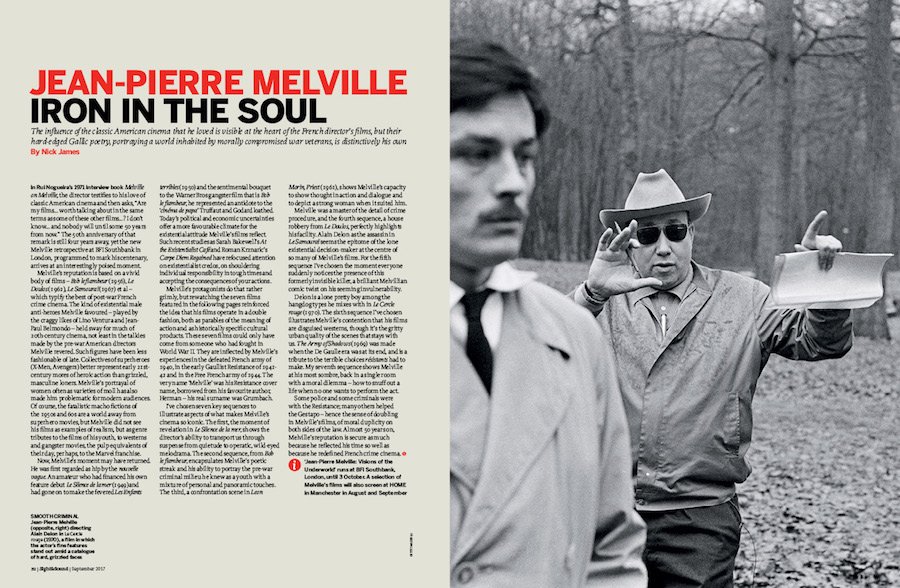
Jean-Pierre Melville: Iron in the Soul
The influence of the classic American cinema that he loved is visible at the heart of French director Jean-Pierre Melville’s films, but their hard-edged Gallic poetry, portraying a world inhabited by morally compromised war veterans, is distinctively his own. By Nick James.
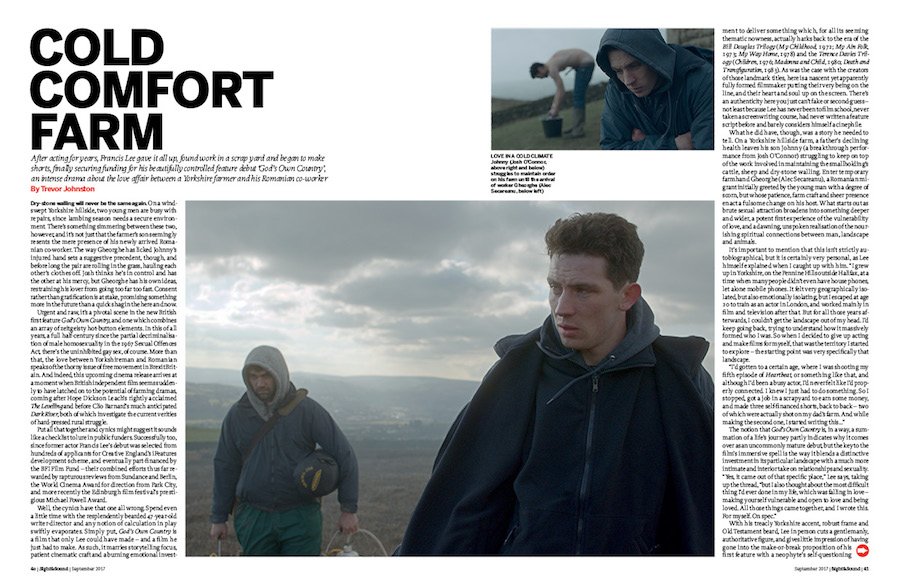
Cold Comfort Farm
After acting for years, Francis Lee gave it all up, found work in a scrap yard and began to make shorts, finally securing funding for his beautifully controlled feature debut God’s Own Country, an intense drama about the love affair between a Yorkshire farmer and his Romanian co-worker. By Trevor Johnston.
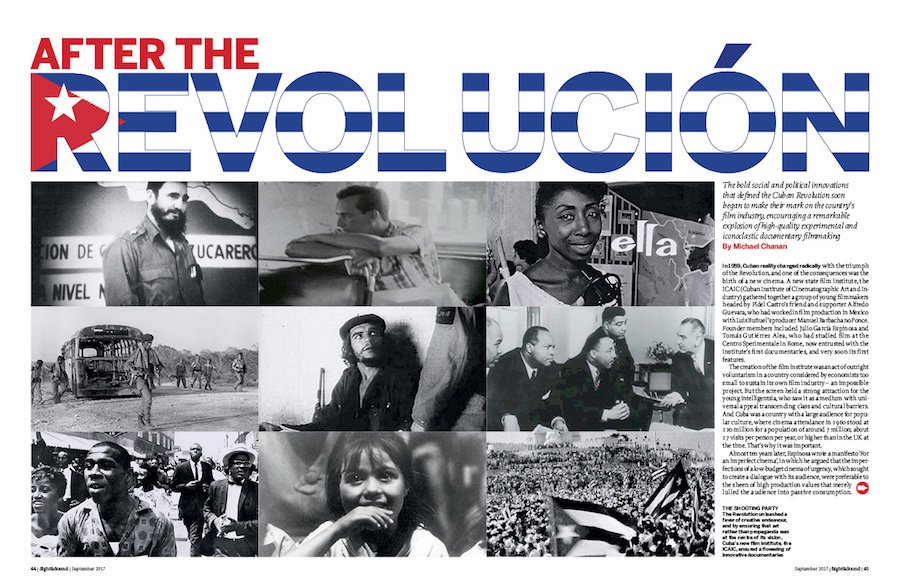
After the Revolución
The bold social and political innovations that defined the Cuban Revolution soon began to make their mark on the country’s film industry, encouraging a remarkable explosion of high-quality experimental and iconoclastic documentary filmmaking. By Michael Chanan.
Regulars
Editorial
Political cinema and the ticking clock
Rushes

Our Rushes section
On our radar
Stephen King, Venice and Toronto festivals, Sally Potter’s early films, Abandon Normal Devices, Open City Documentary Festival, FrightFest, The Saga of Anatahan and Psycho’s soundtrack on seven-inch vinyl.
Interview: Starting at the end
In Hotel Salvation, his first feature, Shubhashish Bhutiani manages to find lightness and humour in contemplating old age and death. By Sophie Monks Kaufman.
The numbers
Lady Macbeth and selected debuts of British filmmakers at the UK box office. By Charles Gant.
Obituary: George A. Romero
The creator of the most influential horror film ever made could never resist revisiting the living dead that had made his name. By Kim Newman.
Dispatches: gentle giants
While critics often rail against pleasantness and gentleness in films, some of the finest contemporary cinema shows they can be virtues. By Mark Cousins.
Festivals
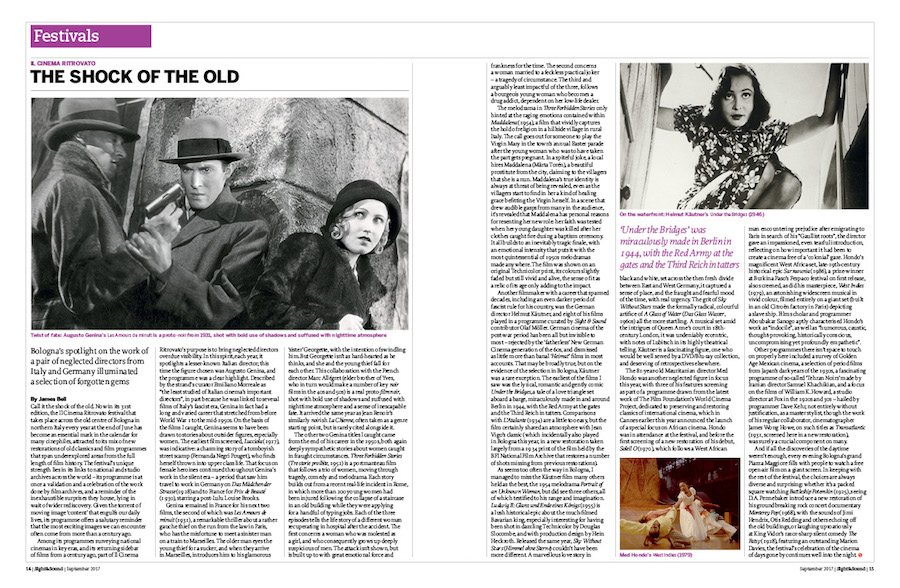
Our Festivals section
Il Cinema Ritrovato: The shock of the old
Bologna’s spotlight on the work of a pair of neglected directors from Italy and Germany illuminated a selection of forgotten gems. By James Bell.
Wide Angle

Our Wide Angle section
Point of view: The high-low country
Once, genre films were a refuge from the self-regarding seriousness of ‘prestige’ movies. Now, it’s genre that takes itself too seriously. By Nick Pinkerton.
Primal screen: The forgotten land
A self-effacing craftsman, Robert Land remains among the better-kept secrets of German-language cinema – but word is getting out. By Olaf Möller.
Festival: Utopia unlimited
Forms and genres mashed up, transposed and abandoned altogether – nothing was off limits at this year’s FID Marseille. By Kieron Corless.
Reviews
Films of the month
Dunkirk
Logan Lucky
Mimosas
Quest
plus reviews of
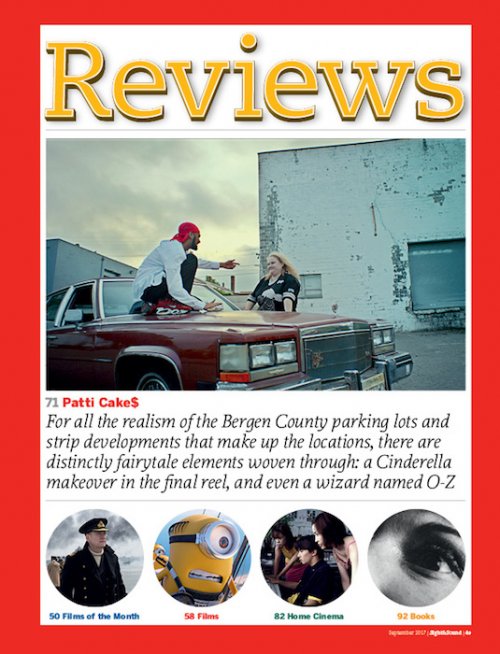
Our Reviews section
Annabelle: Creation
Chubby Funny
Dark Night
Despicable Me 3
Detroit
Everything, Everything
Final Portrait
47 Metres Down
A Ghost Story
Girls Trip
God’s Own Country
The Hitman’s Bodyguard
Hotel Salvation
The House
London Symphony
Moon Dogs
Napping Princess
The Odyssey
Patti Cake$
Rough Night
La Soledad
Spider-Man: Homecoming
Tom of Finland
Una
The Untamed
Valerian and the City of a Thousand Planets
The Wall
War for the Planet of the Apes
Water and Sugar: Carlo Di Palma, The Colours of Life
Williams
Wish Upon
Home Cinema features

Our Home Cinema section
Revved up Suzuki: the Taisho trilogy (Zigeunerweisen / Kagero-za / Yumeji)
A new release of Suzuki Seijun’s enigmatic Taisho Trilogy shows off the films’ gorgeousness – but is that all they have to offer? By Alexander Jacoby.
Rediscovery: Marcel Pagnol – the Marseille trilogy (Marius / Fanny / Cesar)
A masterpiece in danger of vanishing from the collective memory of the English-speaking world gets a sparkling revival. By David Thompson.
Lost and found: Friendship’s Death
Is Peter Wollen’s eerie fable, featuring Tilda Swinton as an alien robot, science-fiction or a prophetic vision? By Graham Fuller.
plus reviews of
The Bird with the Crystal Plumage
The Climber
The Fabulous Baron Munchausen
J’accuse
Films starring Sophia Loren
The 4 Marx Brothers at Paramount: 1929-1933
Mickey One
Momotaro
Sacred Sailors
The Orchard End Murder
Pulse
Terror in a Texas Town
Westfront 1918/Kameradschaft
Zaza
Television
The Frighteners
The Vision
Books
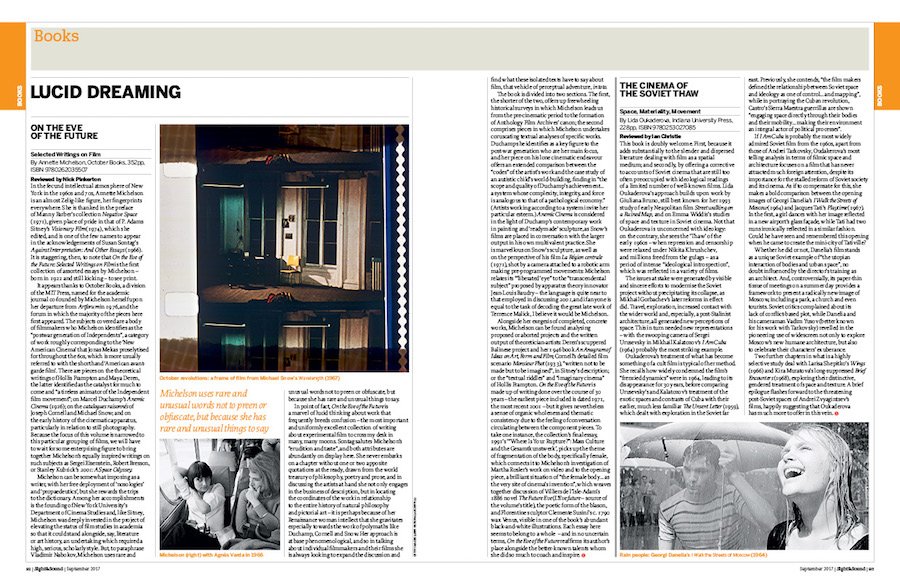
On the Eve of the Future: Selected Writings on Film by Annette Michelson (October Books) reviewed by Nick Pinkerton
The Cinema of the Soviet Thaw: Space, Materiality, Movement by Lida Oukaderova (Indiana University Press) reviewed by Ian Christie
Yesterday’s Films for Tomorrow by P.K. Nair, edited by Rajesh Devraj (Film Heritage Foundation) reviewed by Philip Kemp
Utopian Television: Rossellini, Watkins, and Godard Beyond Cinema by Michael Cramer (University of Minnesota Press) reviewed by Nick Pinkerton
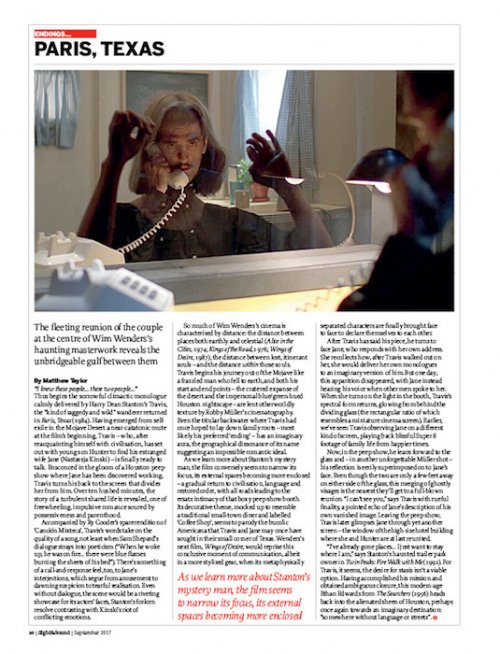
Our Endings section
Letters
Baby Driver’s synthetic mimesis
Baby Driver’s home economics
Dunkirk’s modern-day refugees
Hard-Boiled Hollywood’s compromised reviewer
Unmentionable UK releases
Unmentionable UK non-releases
Brexit charges
Endings
Paris, Texas
The fleeting reunion of the couple at the centre of Wim Wenders’s haunting masterwork reveals the unbridgeable gulf between them. By Matthew Taylor.
Further reading
-
The Digital Edition and Archive quick link
Log in here to your digital edition and archive subscription, take a look at the packages on offer and buy a subscription.




